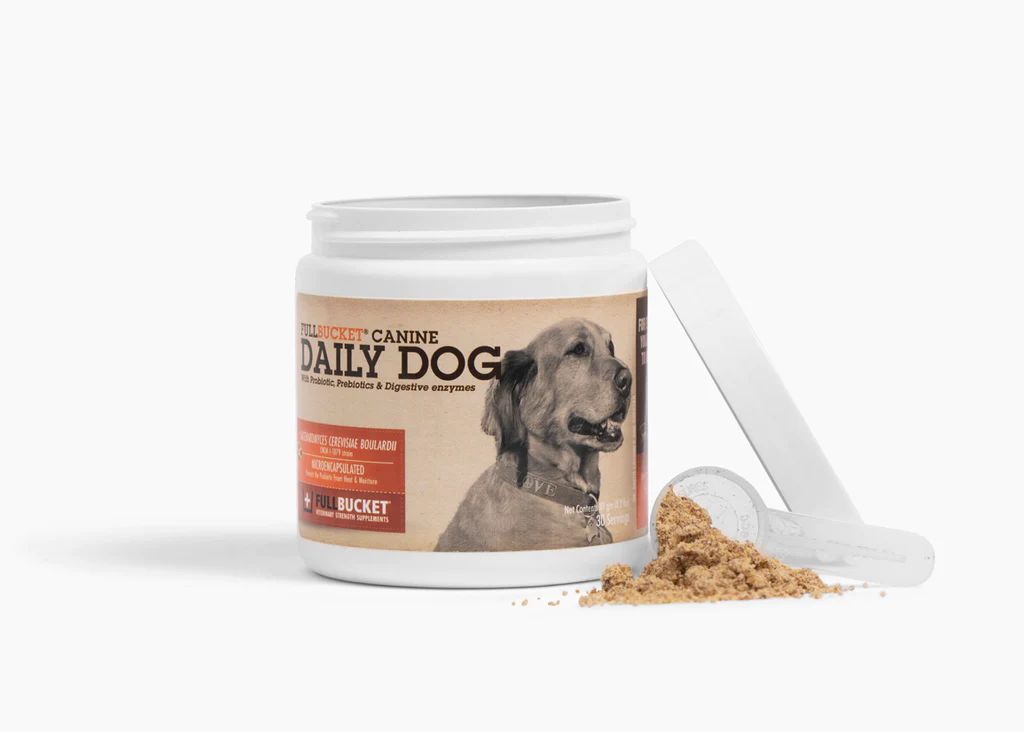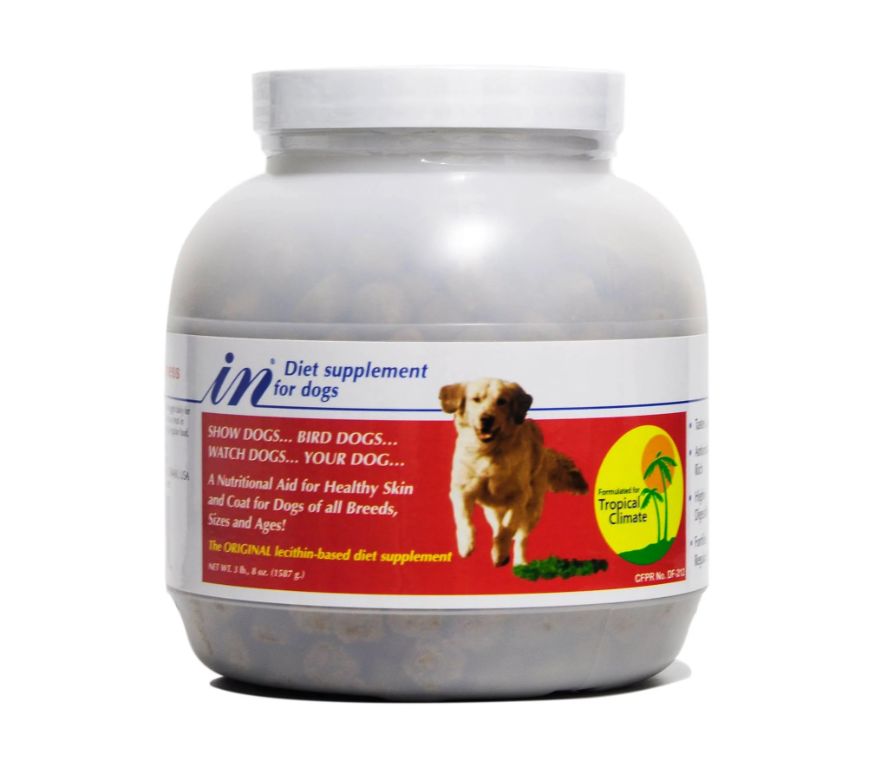Introduction
Dogs that eat a diet consisting primarily of dry kibble require additional supplements to remain healthy. While dry dog food provides complete and balanced nutrition, the cooking process destroys many essential nutrients. Supplementing with items like probiotics, omega fatty acids, antioxidants and more can provide major health benefits for dogs on a dry diet.
By adding supplements to your dog’s meals, you can help support their digestive system, skin and coat health, joint health, immune system, and more. Providing these additional nutrients helps your dog thrive on their kibble diet. It’s an easy way to give your companion the nutritional support they need for longevity and quality of life.
Tips for Making Sure Your Dog Gets Enough Water
Dry dog food contains only about 10% moisture, whereas canned food contains around 75% moisture. This means when feeding only dry food, your dog is missing out on a lot of water content. Dehydration is a real risk with dry food diets.
To make sure your dog stays properly hydrated on a dry food diet, it’s important to provide fresh, clean water at all times. Here are some tips:
- Check water bowls frequently and refill them often. Don’t wait for them to be empty before refilling.
- Consider placing water bowls in multiple locations so there’s always water handy.
- Add a bit of low-sodium broth, pumpkin, or yogurt to the water to make it more enticing.
- Try a pet drinking fountain, which keeps water circulating and fresher tasting.
- Offer ice cubes for crunching as a treat.
- Switch to canned food or add some water to dry kibble to increase moisture intake.
- Monitor urine color for signs of dehydration – it should be pale yellow.

Making water readily available and appealing is key to keeping your dog properly hydrated on a dry food diet. Don’t underestimate the importance of water for overall health!
Omega Fatty Acids
Omega fatty acids provide numerous health benefits for dogs eating dry food. They are crucial for maintaining a healthy skin and coat, which can become dull and flaky without adequate omega fats.
Omega-3 fatty acids like EPA and DHA found in fish oils reduce inflammation, moisturize the skin and make the coat shiny. They also help regulate oil production to prevent issues like dandruff.
Omega-6 fatty acids like gamma-linolenic acid (GLA) improve skin hydration and help relieve itchy or dry skin. GLA is abundant in evening primrose oil.
Adding an omega-3/omega-6 fatty acid supplement or fish oil to your dog’s diet can provide the omega fats needed for skin and coat health that may be lacking in dry food.
The Importance of Probiotics
Probiotics are live beneficial bacteria that can provide tremendous health benefits for dogs eating dry food. They help establish a healthy gut microbiome, which is the community of microorganisms living in the digestive tract.
Some of the top benefits of probiotics for dogs include:
- Improving digestive health – Probiotics help break down food and absorb nutrients. They can help with common issues like diarrhea, constipation, gas, and upset stomach.
- Boosting immunity – A significant portion of the immune system resides in the gut. Probiotics support immune function and help ward off infection and disease.
- Reducing allergies – Probiotics may reduce allergic reactions by balancing the immune response. This can help dogs with food sensitivities.
- Aiding metabolism – Probiotics assist in the production of vitamins and absorption of minerals. This optimizes nutrient digestion.
- Fighting yeast overgrowth – Probiotics prevent the overgrowth of harmful bacteria and yeast in the gastrointestinal tract.
- Producing vitamins – Probiotics facilitate the production of vitamins like vitamin K, many B vitamins, and folate.

Look for dog foods with added probiotics to support your dog’s digestive and immune health. Some high-quality options include Bifidobacterium, Lactobacillus, and Bacillus coagulans strains. Probiotic supplements are another great way to boost your dog’s intake.
Antioxidants
Antioxidants are vital for your dog’s health, especially if they eat dry food. Dry kibble exposes your dog’s cells to more oxidative damage and free radicals. This can harm your dog’s DNA and cellular membranes over time.
Antioxidants like vitamin E, vitamin C, and selenium help stop this cellular damage by neutralizing free radicals. They support healthy cell regeneration and longevity.
Look for dry foods with added antioxidants. Or consider giving your dog an antioxidant supplement to protect their cells.
Some key antioxidants to look for include:
- Vitamin E – Protects cell membranes
- Vitamin C – Boosts immunity
- Selenium – Works with vitamin E
- Lutein – Supports eye health
Giving your dog antioxidants is crucial for counteracting the oxidative effects of dry kibble. This protects your dog against disease and supports healthy cells and longevity.
Why Glucosamine is Important for Joint Health

Glucosamine is a compound that is naturally found in healthy cartilage, the connective tissue that cushions joints. As dogs age, their cartilage can begin to break down and they can experience joint issues like arthritis. Adding a glucosamine supplement to your dog’s diet may help maintain cartilage, protect their joints and improve mobility.
Glucosamine works by stimulating the production of glycosaminoglycans and proteoglycans, which are compounds found in joint cartilage. This helps build new cartilage and prevent the breakdown of existing cartilage. Several studies have shown benefits of glucosamine supplementation for osteoarthritis in dogs.
Glucosamine may also have anti-inflammatory effects that can relieve joint pain and inflammation. Some research indicates it may inhibit inflammatory mediators and naturally reduce swelling.
Look for a dog food or supplement that contains glucosamine hydrochloride or glucosamine sulfate. Follow dosing recommendations based on your dog’s size and weight. Providing daily glucosamine can support joint health and mobility as your dog ages.
Prebiotics
One of the highly recommended additions to any dry dog food is a prebiotic. Prebiotics are specialized plant fibers that help promote the growth of beneficial bacteria in your dog’s gut. They provide the fuel that the good bacteria need to thrive and help improve the digestion and absorption of nutrients from your dog’s food.
Some examples of prebiotics are inulin, fructooligosaccharides (FOS), and galactooligosaccharides (GOS). These can be found in vegetables like chicory root, artichokes, onions, garlic, asparagus, and bananas. When buying dry dog food, look for prebiotic ingredients like these on the label. Or you can add some prebiotic rich fruits and veggies as a topper to your dog’s kibble. Aim for around 1-4 grams of prebiotics per day based on your dog’s size and needs.
By nourishing the good bacteria in the digestive tract, prebiotics in dry dog food can help reduce gastrointestinal issues, boost immunity, and increase the bioavailability of important nutrients. This improves your dog’s digestion, absorption of vitamins/minerals, stool quality, overall health, and even behavior.
Add Digestive Enzymes
Dry dog food lacks the natural digestive enzymes found in raw or wet food. These enzymes help break down fats, proteins and carbohydrates for improved digestion and nutrient absorption. Some of the key digestive enzymes dogs need include:
- Protease – Breaks down proteins
- Amylase – Breaks down carbohydrates
- Lipase – Breaks down fats
Look for a digestive enzyme supplement made specifically for dogs. It should contain protease, amylase and lipase. Give your dog the recommended dosage with each meal. This will promote optimal digestion, minimize gas and stool issues, and allow your dog to properly absorb nutrients from their food.
Vitamins & Minerals

Dry dog food should contain a complete and balanced blend of essential vitamins and minerals. Some key nutrients to look for include:
- Calcium – Supports bone health.
- Phosphorus – Works with calcium for bone growth.
- Vitamin A – Supports eye and skin health.
- Vitamin D – Aids calcium absorption.
- Vitamin E – An antioxidant that boosts immunity.
- Thiamine – Helps convert food into energy.
- Riboflavin – Important for growth and red blood cell production.
- Niacin – Supports skin health.
- Pyridoxine – Helps regulate blood cell production.
- Folic acid – Critical for DNA synthesis.
- Vitamin B12 – Essential for energy metabolism.
- Iron – Transports oxygen in the blood.
- Zinc – Supports skin, coat, and immune health.
- Copper – Needed for iron metabolism.
- Manganese – Involved in cartilage formation.
Look for dry foods with balanced calcium to phosphorus ratios, as too much of one or the other can lead to bone problems. A complete vitamin and mineral profile ensures your dog gets all the essential nutrients they need.
Conclusion
In summary, there are several key supplements that can benefit dogs on a dry food diet. Making sure your dog gets enough water is crucial, as dry food contains minimal moisture. Adding omega fatty acids, probiotics, antioxidants and glucosamine to your dog’s diet can support joint health, digestion, immunity and skin and coat health. Prebiotics and digestive enzymes also aid digestion. It’s also important that your dog’s food, whether dry or wet, contains complete and balanced vitamins and minerals. While an excellent quality dry food contains all of these nutrients, supplementing with additional sources ensures your dog gets the nutrition they need. With the right supplementation regimen, you can help your dog thrive on a nutritious dry food diet.